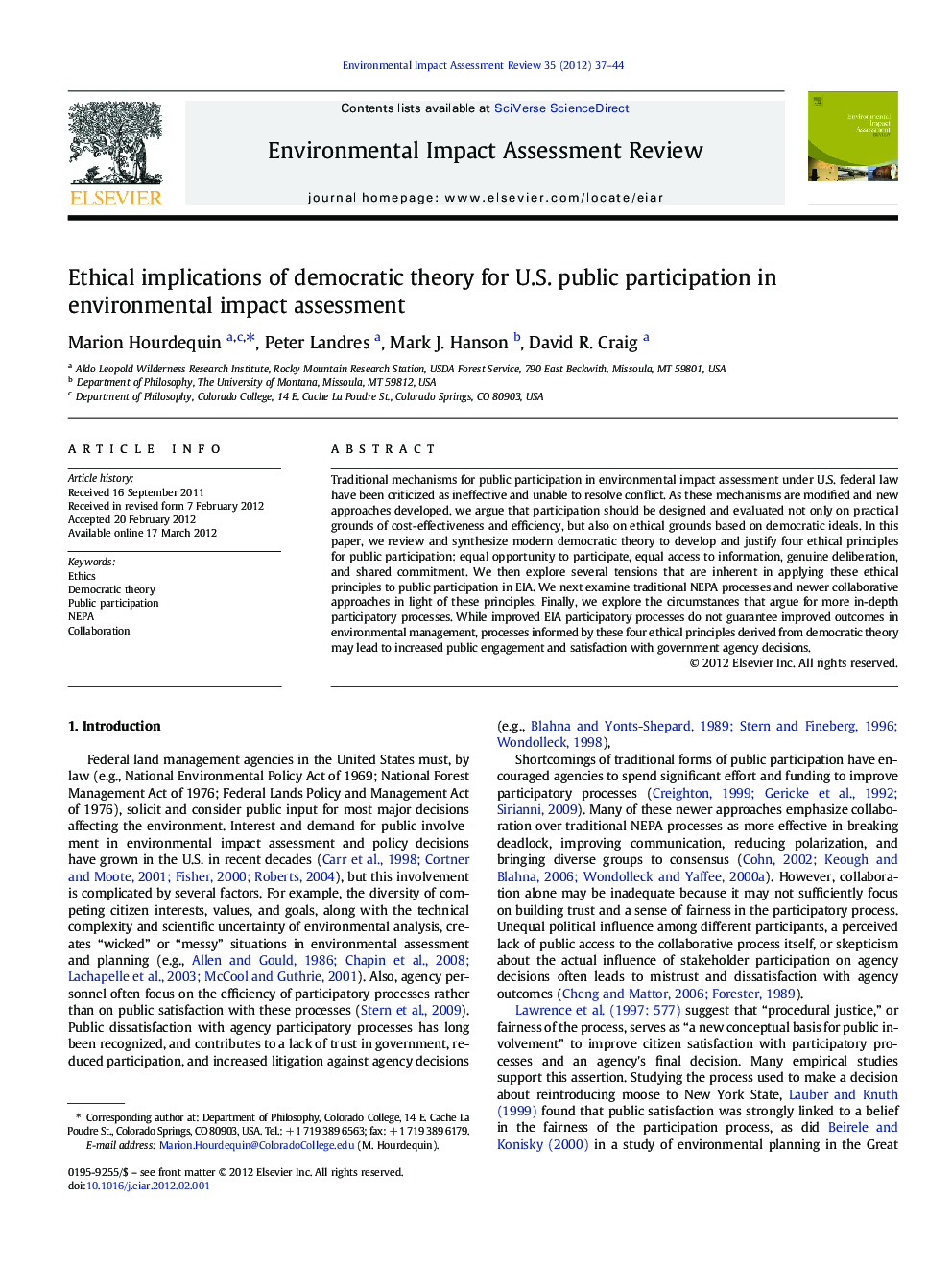| Article ID | Journal | Published Year | Pages | File Type |
|---|---|---|---|---|
| 1052901 | Environmental Impact Assessment Review | 2012 | 8 Pages |
Traditional mechanisms for public participation in environmental impact assessment under U.S. federal law have been criticized as ineffective and unable to resolve conflict. As these mechanisms are modified and new approaches developed, we argue that participation should be designed and evaluated not only on practical grounds of cost-effectiveness and efficiency, but also on ethical grounds based on democratic ideals. In this paper, we review and synthesize modern democratic theory to develop and justify four ethical principles for public participation: equal opportunity to participate, equal access to information, genuine deliberation, and shared commitment. We then explore several tensions that are inherent in applying these ethical principles to public participation in EIA. We next examine traditional NEPA processes and newer collaborative approaches in light of these principles. Finally, we explore the circumstances that argue for more in-depth participatory processes. While improved EIA participatory processes do not guarantee improved outcomes in environmental management, processes informed by these four ethical principles derived from democratic theory may lead to increased public engagement and satisfaction with government agency decisions.
► Four ethical principles based on democratic theory for public participation in EIA. ► NEPA and collaboration offer different strengths in meeting these principles. ► We explore tensions inherent in applying these principles. ► Improved participatory processes may improve public acceptance of agency decisions.
